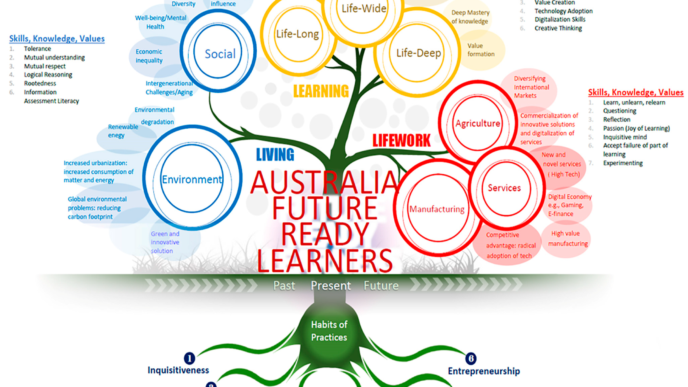In 2025, having a solid online presence is a must for entrepreneurs. Your entrepreneur website is often the first impression potential customers will have of your business. To make sure that impression counts, there are a few key features that every entrepreneur website should include. From user-friendly designs to integrated marketing tools, let’s explore what you need to build a successful online platform.
Key Takeaways
- A user-friendly design keeps visitors engaged and helps them find information quickly.
- Marketing tools like SEO and social media integration can boost your online visibility and reach.
- Robust security features are essential to protect your business and customers’ data.
User-Centric Design Principles
Okay, so, user-centric design. What’s the big deal? Well, think about it. Your website isn’t for you. It’s for the people who are going to use it. If they can’t figure out how to do what they want, they’re gone. Poof. And they’re going to your competitor. So, making sure your site is easy and enjoyable to use is, like, super important. It’s not just about looking pretty (though that helps!), it’s about making things work for your visitors. Here’s how to do it:
Intuitive Navigation
No one wants to play hide-and-seek with your content. People should be able to find what they need without a struggle. Think clear menus, logical site structure, and maybe even a search bar that actually works. Here are some things to keep in mind:
- Simple Menus: Keep your main menu items to a minimum. Too many options and people get overwhelmed. "Services," "About Us," "Contact," that kind of thing. Don’t overthink it. A user-friendly interface is key.
- Clear Labels: Use language that everyone understands. No jargon, no fancy words. Just plain English. If you offer "holistic wellness solutions," maybe just say "wellness services."
- Breadcrumbs: These are those little links at the top of the page that show people where they are on your site. Super helpful for complex sites. They help with SEO optimization too.
Responsive Layout
People are using all sorts of devices to access the internet these days. Phones, tablets, laptops, you name it. Your website needs to look good and function well on all of them. That’s where responsive design comes in. It automatically adjusts the layout of your site to fit the screen size of the device being used. If your site isn’t responsive, you’re basically telling a huge chunk of your potential customers to go away. Here’s why it matters:
- Mobile-First Indexing: Google prioritizes mobile-friendly websites in its search results. So, if your site isn’t responsive, you’re going to have a harder time ranking well. This is a big deal for integrated marketing tools.
- Better User Experience: A responsive site provides a better experience for users on all devices. They don’t have to zoom in or scroll sideways to read your content. This leads to increased engagement and conversions.
- Future-Proofing: As new devices and screen sizes emerge, a responsive site will adapt automatically. You won’t have to constantly redesign your site to keep up with the latest trends. This saves you time and money in the long run.
Integrated Marketing Tools

Okay, so you’ve got a website. Cool. But now what? How do you actually get people to see it? That’s where integrated marketing tools come in. It’s not enough to just have a pretty site; you need to make sure it’s working for you, bringing in traffic, and turning visitors into customers. Think of it as your website’s personal hype squad.
SEO Optimization
Seriously, if your site isn’t optimized for search engines, it’s like opening a store in the middle of the desert. Nobody’s gonna find you. Here’s the deal:
- Keyword Research: You gotta figure out what people are actually searching for. Tools like SEMRush for SEO can help you find the right keywords to target.
- On-Page Optimization: This means making sure your website’s content, title tags, and meta descriptions are all optimized for those keywords. It’s like speaking the search engine’s language.
- Content is Still King: Create content that people actually want to read and share. Blog posts, articles, videos – whatever works for your audience. Just make sure it’s good stuff. Google loves fresh, relevant content.
Social Media Integration
Social media is where everyone hangs out these days, so your website needs to be part of the party. It’s not just about posting updates; it’s about creating a community and engaging with your audience. Here’s how to do it right:
- Easy Sharing: Make it super easy for people to share your content on social media. Add social sharing buttons to your blog posts and product pages. The easier it is, the more likely people are to do it.
- Consistent Branding: Your social media presence should match your website’s branding. Use the same colors, fonts, and tone of voice. It’s all about creating a cohesive brand experience. Use Canva for designing visuals to keep your branding consistent.
- Social Listening: Pay attention to what people are saying about your brand on social media. Respond to comments, answer questions, and address any concerns. It shows you care and builds trust. You can use tools like Hootsuite to schedule and manage social media posts.
Robust Security Features

Okay, so security. It’s not the most exciting topic, but honestly, it’s super important, especially if you’re running a business online. People are trusting you with their data, and you gotta take that seriously. Think of it like locking the doors to your shop at night, but for the internet. You wouldn’t leave your physical store wide open, right? Same deal here. Let’s talk about some must-haves for your website’s security.
Data Protection Measures
First off, you need to think about how you’re handling data. It’s not just about having a privacy policy (though you definitely need one of those). It’s about actually protecting the information you collect. Here’s a few things to consider:
- Encryption: Make sure your website uses HTTPS. It’s like sending your data through a secret code, so even if someone intercepts it, they can’t read it. Most hosting providers offer SSL certificates (that’s the ‘S’ in HTTPS) for free these days, so there’s really no excuse not to have it.
- Regular Backups: Imagine your website gets hacked or something goes wrong with the server. If you don’t have backups, you could lose everything. Set up automatic backups, so you can restore your site quickly if disaster strikes.
- Access Control: Not everyone needs access to everything. Limit who can access sensitive data and systems. Use strong passwords and consider two-factor authentication for extra security. It’s like having multiple locks on your front door.
Secure Payment Gateways
If you’re selling anything online, this is non-negotiable. You absolutely need a secure payment gateway. Don’t even think about handling credit card information yourself. It’s way too risky, and you could get into serious trouble. Here’s what to look for:
- PCI Compliance: This is a set of security standards for handling credit card information. Make sure your payment gateway is PCI compliant. It shows they’re taking security seriously.
- Tokenization: This is where the payment gateway replaces sensitive data with a random string of characters (a token). That way, your website never actually stores the credit card number. It’s like using a fake name when you order pizza, so the delivery guy doesn’t know your real identity.
- Fraud Detection: A good payment gateway will have built-in fraud detection tools to help prevent fraudulent transactions. This can save you a lot of headaches down the road. It’s like having a security guard at the door, checking IDs.
Our security features are designed to keep your information safe and sound. We use strong tools to protect your data from any threats. If you want to learn more about how we keep your information secure, visit our website today!
Wrapping It Up
In 2025, having a solid website is key for any entrepreneur. You need to make sure your site is easy to use, looks good, and works well on all devices. Don’t forget about features like online booking, customer reviews, and a blog to keep your audience engaged. These elements not only help you stand out but also build trust with your visitors. As you plan your website, think about what your audience really needs. Keep it simple, focused, and user-friendly. With the right features, your website can be a powerful tool for your business.










